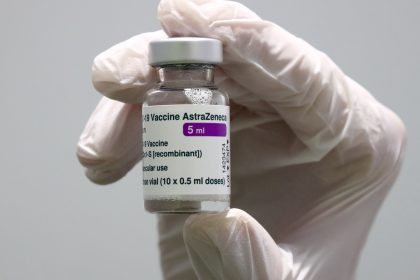How a Government Shutdown Would Affect Federal Health Programs

WASHINGTON — With uncertainty continuing to swirl around Capitol Hill, conversations have begun to focus not on if there will be a partial shutdown of the federal government come midnight on Saturday, but on how that almost inevitable shutdown will affect a wide range of federal programs.
When it comes to some government functions, the bell tolling on the 2023 fiscal year will mean a hard stop. For others — those considered mandatory spending programs — the good news is the impact won’t be felt immediately.
In the health care area, the programs receiving “mandatory” funding include Medicare, Medicaid and health plans sold under the Affordable Care Act.
In the short term, all three of these programs would be largely unaffected by a government shutdown — patient benefits would continue under all three, and doctors, hospitals and other care providers will be able to submit bills for care and receive payment for the services they render.
However, that said, any federal staff not considered “essential” would be furloughed once the shutdown begins, slowing some of the activities of the offices that oversee the programs.
On Wednesday, HHS officials told The Well News that a shutdown likely won’t affect Medicare’s annual open enrollment period, which starts Oct. 15, because funding for it has already been allocated.
The open enrollment period is that time each year when current program beneficiaries can join or change their Medicare Advantage or prescription drug plans.
Officials also said the 1-800-MEDICARE hotline and federally funded state counseling agencies that advise beneficiaries about their Medicare options, have also been funded for this year.
Open enrollment for Affordable Care Act health insurance plans, which is slated to start Nov. 1, will also escape a government shutdown’s impacts — at least in the short term.
Even without further federal action, the federal health exchange, HealthCare.gov, will continue its activities using leftover fees paid by insurers during the last fiscal year.
Where things get a bit dicier and more uncertain is what will happen at agencies like the National Institutes of Health and the Centers for Disease Control and Prevention, which are just two of the many agencies that receive discretionary funding under the Department of Health and Human Services.
On Wednesday, Amanda Fine, chief spokesperson for the NIH, said the agency has been referring all reporters seeking comment to the White House Office of Management and Budget.
“Feel free to loop back later in the week in case guidance changes,” Fine said.
The Centers for Medicare & Medicaid Services also referred any questions about the shutdown to the OMB.
For those interested, the OMB’s shutdown contingency plans for all federal departments can be found here.
Lisa George, press officer at the Centers for Disease Control and Prevention, sent The Well News a link outlining its expectations as of Wednesday morning.
As of right now, the CDC plans to “continue support to protect the health and well-being of U.S. citizens here and abroad through response to outbreaks, maintaining laboratory functions, the President’s Emergency Plan for AIDS Relief, and the agency’s 24/7 emergency operations center.”
The agency would also continue the World Trade Center Health Program, the Energy Employees Occupational Illness Compensation Program Act, and the Vaccines for Children program, which are supported through mandatory funding.
The CDC goes on to say that the Department of Health and Human Services would “use the full extent of the authority under the ADA to protect life and property under a lapse in appropriations.”
CDC’s immediate response to urgent disease outbreaks and critical investigation needs in areas such as food, health care, vectors (mosquitoes and ticks), and high-consequence pathogens would continue, and the agency would collect data being reported by states, hospitals and others, and report critical information needed for state and local health authorities and providers to track, prevent and treat diseases.
In regard to staffing, if there is a “lapse of appropriations” as of midnight Saturday, the agency will retain about 41% of its staff — 6,176 employees — including 17% — or 2,594 employees — who are not subject to being furloughed because their activities or positions have already been funded or are otherwise exempt, and 24% — 3,582 employees — who are excepted because their roles are considered necessary, or play a direct role in the safety of human life and property.
“Additionally staff will also be considered excepted and continue to work if their duties are necessary to ensure the ongoing support and operations of funded activities, or if they are needed for the orderly phase down and suspension of non-funded activities,” the agency said.
“These CDC staff will continue to provide the necessary operational support to ensure the centers and offices can continue authorized and funded activities.”
As the NIH’s Fine pointed out, it is the White House Office of Management and Budget that is responsible for drawing up contingency plans in case of a government shutdown.
Its plan for Health and Human Services estimates that 42% of its staff — or 37,325 employees — would be furloughed as of day two of a shutdown, while 58% — or 51,293 employees — would remain on duty.
The OMB notes that these percentages vary among HHS operating divisions and offices: those more directly involved in providing a service to the general public will have more of their staff retained.
“For example, the NIH Clinical Center will continue to care for patients and admit new patients for whom it is medically necessary,” the plan says.
In addition, it says, “FDA will continue core functions to handle and respond to emergencies — such as monitoring for and quickly responding to outbreaks related to foodborne illness and the flu, supporting food and medical product recalls when products endanger consumers and patients.”
OMB expects a wide array of FDA activities funded through carryover user fee funding will continue including activities related to the regulation of human and animal drugs, biosimilar biological products, medical devices and tobacco products.
User fee work specifically supports the review and approval of new medical products, the review of requests to conduct important clinical research, the issuance of guidance, and other necessary activities to help patients have access to new therapies and important generic and biosimilar treatment options.
Additionally, activities that can be carried out with COVID-19 supplemental funding include work on emergency use authorizations to respond to the COVID-19 pandemic, mitigation efforts related to potential drug and medical product shortages and other supply chain disruptions, medical device infection control, work on enforcement actions for fraudulent, counterfeit and misbranded products related to COVID-19, and work on medical countermeasures, therapies, and vaccines and important generic and biosimilar treatment options.
The FDA will continue to pursue criminal and certain civil investigations when the agency believes public health is at risk, and it will continue to screen the food and medical products that are imported to the U.S. to protect consumers and patients from harmful products.
It will also retain a large majority of its staff during a shutdown, with 81% or 15,602 members of its staff still working during the lapse of appropriations. Of the staff retained, 998 would be working directly on COVID-19 response activities.
As for the OMB’s plan for the previously mentioned Centers for Medicare & Medicaid Services, the office said in addition to Medicare itself, other non-discretionary activities including Health Care Fraud and Abuse Control and Center for Medicare and Medicaid Innovation activities will also continue during a shutdown.
In fact, the OMB says the Centers for Medicare & Medicaid Services will have sufficient funding for Medicaid to fund the first quarter of FY 2024, based on the advance appropriation provided for last year.
CMS will also be able to maintain the staff necessary to make payments to eligible states for the Children’s Health Insurance Program, and to continue Federal Exchange activities, such as eligibility verification, using Federal Exchange user fee carryover.
As for staffing, just under half of the agency’s staff (49% or 3,236 workers) will continue to be on the job, including 2,928 (or 45%) who are in exempt positions and not eligible to be furloughed.
So where does the debate over a stopgap funding bill stand now?
As previously reported by The Well News, a bipartisan bill proposed in the Senate Tuesday evening would keep the government funded through Nov. 17 in order to give appropriators time to hash out a fiscal year 2024 spending plan for the entire government.
Among other things, the Senate bill would temporarily reauthorize hospital payments, the federally qualified health centers program, graduate medical education funding, the National Health Service Corps and other health care policy initiatives.
On Wednesday, House Speaker Kevin McCarthy, R-Calif., told members of his conference that he will not bring the Senate measure to the House floor for consideration.
Instead he said he would try to put a new GOP proposal for a continuing resolution on the House floor by Friday. That would leave just a day for negotiation with the Democratically controlled Senate and White House before the shutdown deadline.
Dan can be reached at [email protected] and at https://twitter.com/DanMcCue

























